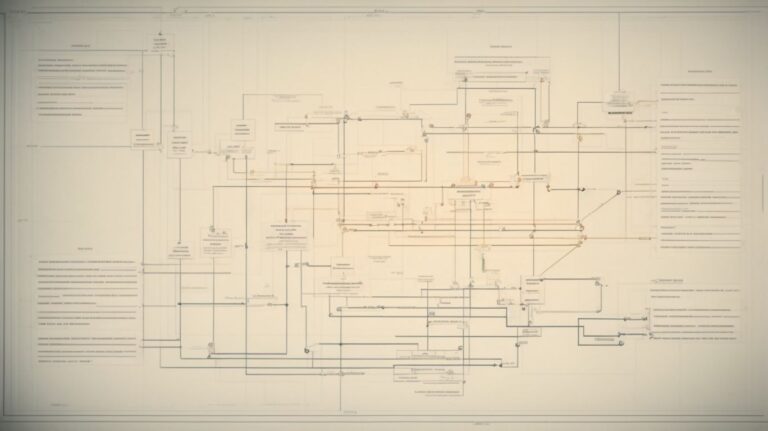Do you ever find yourself completely immersed in an activity, losing track of time and feeling a sense of control and focus? This state of being, known as flow, is a key concept in positive psychology that can greatly impact our well-being.
In this comprehensive guide, we will explore the characteristics of flow, how it affects our emotions and performance, and practical tips on how to cultivate flow in your daily life. Get ready to unlock the power of flow and enhance your overall happiness and productivity.
Contents
What Is Flow in Positive Psychology?
Flow, a concept in positive psychology introduced by Mihaly Csikszentmihalyi, refers to the state of complete absorption and focus in an activity where individuals experience a seamless immersion.
When in a state of Flow, individuals often lose track of time and find deep enjoyment in the process itself. Flow entails a balance between the challenge of the task at hand and one’s skill level, leading to a sense of effortless action. This optimal experience is characterized by a sense of control, clear goals, immediate feedback, and a merging of action and awareness.
Psychologically, the concept of Flow is linked to increased motivation, creativity, and overall well-being. It fosters a sense of fulfillment and personal growth by pushing individuals to stretch their capabilities and engage in activities that are intrinsically rewarding.
What Are the Characteristics of Flow?
The characteristics of Flow encompass a delicate balance between challenges and skills, leading to a state of complete immersion and enjoyment in the activity at hand.
The interplay of challenges and skills in Flow defines a unique experience where individuals find themselves fully absorbed in the task, forgetting external pressures and focusing solely on the present moment.
As individuals engage in activities that match their abilities while presenting a level of challenge that keeps them fully engaged, they enter a state of Flow where time seems to slip away, and a deep sense of satisfaction emerges.
This sense of achievement and fulfillment derived from being in Flow can lead to increased motivation, creativity, and overall well-being, making it a highly sought-after state in various pursuits, from sports to work.
Intense Focus and Concentration
Achieving intense focus and concentration is a hallmark of Flow experiences, where individuals engage in activities with unwavering attention and self-compassion.
When you are completely immersed in a task, you lose track of time and feel a sense of deep satisfaction. Focus enables you to enter this state of Flow, where your skills perfectly match the challenges at hand. In these moments, distractions fade away, and your mind operates at its peak performance level.
Self-compassion plays a vital role in sustaining this level of concentration, as it allows for a forgiving and understanding attitude towards any lapses in focus. By being kind to oneself, individuals are better able to maintain their concentration and return to the task at hand with renewed energy.
Loss of Self-Consciousness
The loss of self-consciousness is a common occurrence in Flow states, allowing individuals to form meaningful connections with the activity without distractions.
When immersed in a state of Flow, individuals often experience a heightened sense of focus and engagement, where their actions seamlessly align with their thoughts and feelings. This harmony between mind and body fosters a deep connection with the task at hand, transcending self-doubt or external pressures. In this state, time may seem to blur, and individuals lose track of their worries, anxieties, and insecurities, entering a realm of pure concentration and performance.
Sense of Control
A sense of control pervades Flow experiences, enableing individuals to navigate challenges with confidence and derive fulfillment from overcoming obstacles.
In the realm of psychological flow, the concept of control plays a pivotal role in shaping one’s engagement with activities. When individuals feel they have agency over their actions and decisions, they are more likely to enter a state of flow where their skills are in perfect harmony with the challenges at hand. This sense of control creates a feedback loop, enhancing focus, motivation, and enjoyment.
The relationship between challenges and fulfillment in flow experiences is intrinsically tied to the individual’s perceived level of control. Challenges provide the necessary stimulus for growth and development, but it is the feeling of mastery and control that ultimately leads to a sense of fulfillment and accomplishment.
Time Distortion
Time distortion is a common feature of Flow, where individuals lose track of time and are driven by a sense of purpose and creativity in their activities.
This phenomenon, often described as being ‘in the zone,’ occurs when a person is fully immersed in a task, resulting in heightened focus and performance. During Flow, the brain’s prefrontal cortex, responsible for self-awareness and critical thinking, is temporarily silenced, allowing for seamless execution of actions without hesitations or distractions.
The individual’s perception of time shifts, with hours feeling like minutes, as they become fully engrossed in the present moment. This time warp is influenced by the level of challenge and skill required in the activity, with tasks that are too easy resulting in boredom and those that are too difficult leading to anxiety.
Clear Goals and Feedback
Clear goals and timely feedback are essential components of Flow experiences, fostering intrinsic motivation and guiding individuals towards a sense of accomplishment.
Setting clear goals provides individuals with a sense of direction and purpose, allowing them to focus their energy and attention on meaningful tasks. Goals act as beacons, guiding one’s actions and decisions towards desired outcomes.
Similarly, receiving timely feedback serves as a crucial tool for self-assessment and growth. Constructive feedback helps individuals understand their progress, identify areas for improvement, and make necessary adjustments to stay on track towards achieving their goals.
This combination of clear goal-setting and feedback loop creates a positive cycle that fuels intrinsic motivation. When individuals see tangible progress and receive acknowledgment for their efforts, it boosts their confidence and drives them to continue challenging themselves.
How Does Flow Affect Our Well-Being?
Flow has a profound impact on our overall well-being, contributing to increased happiness, meaningful relationships, and a transformative journey towards personal growth.
When individuals are fully immersed in an activity that challenges them just enough to keep them engaged but not overwhelmed, they enter a state of Flow. This state brings a sense of fulfillment, focus, and contentment that can enhance their mental and emotional well-being. Through Flow, people often experience a sense of timelessness, losing track of hours as they are fully absorbed in the present moment.
The sense of accomplishment and mastery that comes from engaging in Flow activities can boost one’s self-esteem and confidence, leading to a positive outlook on life. This enhanced self-efficacy can spill over into all aspects of their life, improving performance at work, strengthening personal relationships, and fostering a deeper connection with themselves.
Positive Emotions
Engaging in Flow triggers a cascade of positive emotions, fostering a sense of fulfillment and contentment in individuals as they immerse themselves in meaningful activities.
Flow experiences are characterized by a state of complete absorption, where individuals lose track of time and feel a deep connection to the task at hand. This intense focus leads to a sense of accomplishment and satisfaction that can enhance overall well-being. When individuals are fully immersed in the activity, challenges and skills are perfectly balanced, creating a harmonious state of mind.
This psychological state, as described by Mihaly Csikszentmihalyi, is associated with high levels of intrinsic motivation and a heightened sense of control. Achieving Flow allows individuals to tap into their creativity and skills, leading to a sense of personal growth and psychological fulfillment.
Increased Motivation and Engagement
Flow boosts motivation and engagement levels, propelling individuals towards creative pursuits and deepening their involvement in activities that spark their passion.
When individuals are in a state of Flow, they experience a heightened sense of focus and enjoyment, losing track of time as they become fully immersed in the task at hand. This intense concentration often leads to a sense of accomplishment and fulfillment, driving individuals to seek out new challenges and opportunities for growth.
As they continue to push themselves beyond their limits, the creative outcomes of their Flow experiences become increasingly apparent, whether through groundbreaking innovations, artistic masterpieces, or simply a newfound sense of self-expression.
Improved Performance
Flow is linked to improved performance across various domains, sharpening skills, and enabling individuals to tackle challenges with heightened proficiency and ease.
It’s like stepping into a zone where everything falls into place effortlessly, like a rhythmic dance of capabilities coming together seamlessly. This state of total immersion not only boosts productivity but also cultivates a deeper understanding of one’s craft. Through the continuous challenge and feedback loop intrinsic to Flow, individuals refine their abilities, pushing past limitations and honing their expertise. The intense focus and intrinsic motivation experienced in Flow play a significant role in skill development, fostering a sense of mastery and accomplishment.
Enhanced Learning and Creativity
Flow facilitates enhanced learning and creativity, unlocking individuals’ potential to explore new horizons, foster innovation, and infuse purpose into their endeavors.
When individuals are in a state of Flow, their focus deepens, distractions fade, and they become fully immersed in the task at hand. This heightened sense of concentration allows for a seamless blend of challenge and skill, leading to an optimal state of performance. In this state, individuals experience a sense of timelessness, where hours pass by unnoticed as they are completely absorbed in their activities.
During a Flow state, individuals often report feelings of joy, contentment, and a deep sense of fulfillment. This emotional positivity not only enhances the learning process but also fuels creativity, enabling individuals to think outside the box and generate innovative ideas.
How Can We Cultivate Flow?
Cultivating Flow involves embracing mindfulness, savoring moments of enjoyment, and finding a harmonious balance between challenges and skills to enhance our daily experiences.
One effective way to foster Flow in your life is by practicing mindfulness regularly. This involves being fully present in the moment, appreciating the sensations, emotions, and thoughts that arise without judgment. Mindfulness allows you to immerse yourself in the present experience, letting go of worries about the past or future. By focusing on what is happening right now, you can better engage with tasks at hand and find joy in simple pleasures.
Identify Your Flow Activities
The first step in cultivating Flow is to identify activities that resonate with your purpose and evoke self-compassion, setting the stage for immersive and fulfilling experiences.
Recognizing activities that spark Flow can be a deeply personal journey, as it involves understanding what truly energizes and engages you. By paying attention to moments when time seems to slip away effortlessly, when you are fully absorbed in a task, you can pinpoint these Flow-inducing activities. It’s crucial to align these activities with your personal values and aspirations, ensuring that they contribute to your overall well-being and sense of fulfillment.
Minimize Distractions
Minimizing distractions is crucial in fostering Flow, as it allows individuals to maintain focus, navigate challenges effectively, and immerse themselves fully in the present moment.
Distractions can significantly impede one’s ability to achieve a state of Flow. Common distractions such as notifications, background noise, or multitasking can break concentration and hinder performance.
To enhance focus and create an environment conducive to Flow, it’s essential to eliminate or minimize these distractions. Setting specific work hours, creating a designated workspace, and utilizing tools like noise-canceling headphones can help in reducing external interruptions. Practicing mindfulness techniques, such as deep breathing or meditation, can aid in improving concentration and mental clarity.
Set Clear Goals and Feedback
Establishing clear goals and seeking timely feedback play a pivotal role in cultivating Flow, fostering intrinsic motivation and propelling individuals towards optimal performance.
Setting well-defined objectives provides a roadmap for individuals to channel their efforts effectively towards a specific outcome. In addition, receiving feedback serves as a guiding compass, offering valuable insights on areas for improvement and highlighting achievements, thus fine-tuning the strategies for reaching those goals. This continuous cycle of goal setting and feedback not only enhances self-awareness but also fuels the intrinsic drive within each individual to continuously strive for growth and mastery.
Challenge Yourself
Embracing challenges is essential for cultivating Flow, as it enables individuals to sharpen their skills, foster personal growth, and experience a sense of accomplishment through overcoming obstacles.
When individuals step out of their comfort zones and tackle demanding tasks, they enter a state of heightened focus and deep engagement known as flow. This state not only enhances productivity and creativity but also promotes a feeling of fulfillment and satisfaction.
- Challenges act as catalysts for skill development, pushing individuals to acquire new competencies and refine existing ones.
- Overcoming challenges builds resilience and self-confidence, paving the way for continuous growth and progress.
By seeking out challenges and embracing discomfort, individuals open the door to endless opportunities for self-improvement and personal development.
Practice Mindfulness
Mindfulness practices serve as a cornerstone for cultivating Flow, promoting a sense of balance, enhancing enjoyment, and deepening the connection to the present moment in daily activities.
Incorporating mindfulness into one’s routine lays the groundwork for experiencing Flow more consistently. By embracing mindfulness, individuals can observe their thoughts without judgment, be fully present in each moment, and create a space for creativity to flourish effortlessly.
Simple practices like mindful breathing, mindful eating, and mindful walking can bring a profound sense of peace and focus to daily life. The interplay between mindfulness and balance is crucial in navigating the complexities of modern living while staying grounded and centered.
Frequently Asked Questions
What is flow and how can it be applied in positive psychology?
Flow refers to the state of being fully immersed and engaged in an activity, where one experiences a sense of energized focus and enjoyment. In the context of positive psychology, flow is seen as a pathway to optimal well-being and can be cultivated through various techniques and practices outlined in a comprehensive guide.
Why is it important to unlock the power of flow in positive psychology?
Flow has been linked to numerous benefits, including increased happiness, creativity, and productivity. By harnessing the power of flow, individuals can experience a greater sense of fulfillment and purpose in their lives, leading to overall improved well-being.
Can anyone experience flow?
Yes, flow is a universal experience and can be accessed by anyone, regardless of age, gender, or background. It is a natural state of being that can be enhanced and cultivated through intentional efforts.
How can I use flow in my daily life?
There are various techniques and practices that can help you tap into the power of flow in your daily life. These may include setting clear goals, finding activities that challenge and engage you, and practicing mindfulness and presence. A comprehensive guide can provide more specific strategies and tools to incorporate flow into your daily routine.
Are there any risks associated with flow?
While flow is generally seen as a positive and beneficial state, there may be some risks involved if an individual becomes too absorbed and loses track of time and surroundings. It is important to maintain a healthy balance and not neglect other important aspects of life while pursuing flow experiences.
Can flow be sustained over time?
Flow is not a constant state and may come and go depending on various factors. However, by incorporating flow into one’s daily life and making it a priority, individuals can experience flow more frequently and sustain it for longer periods of time.



